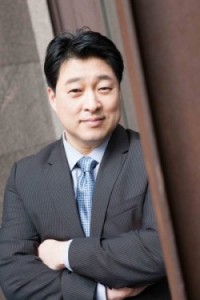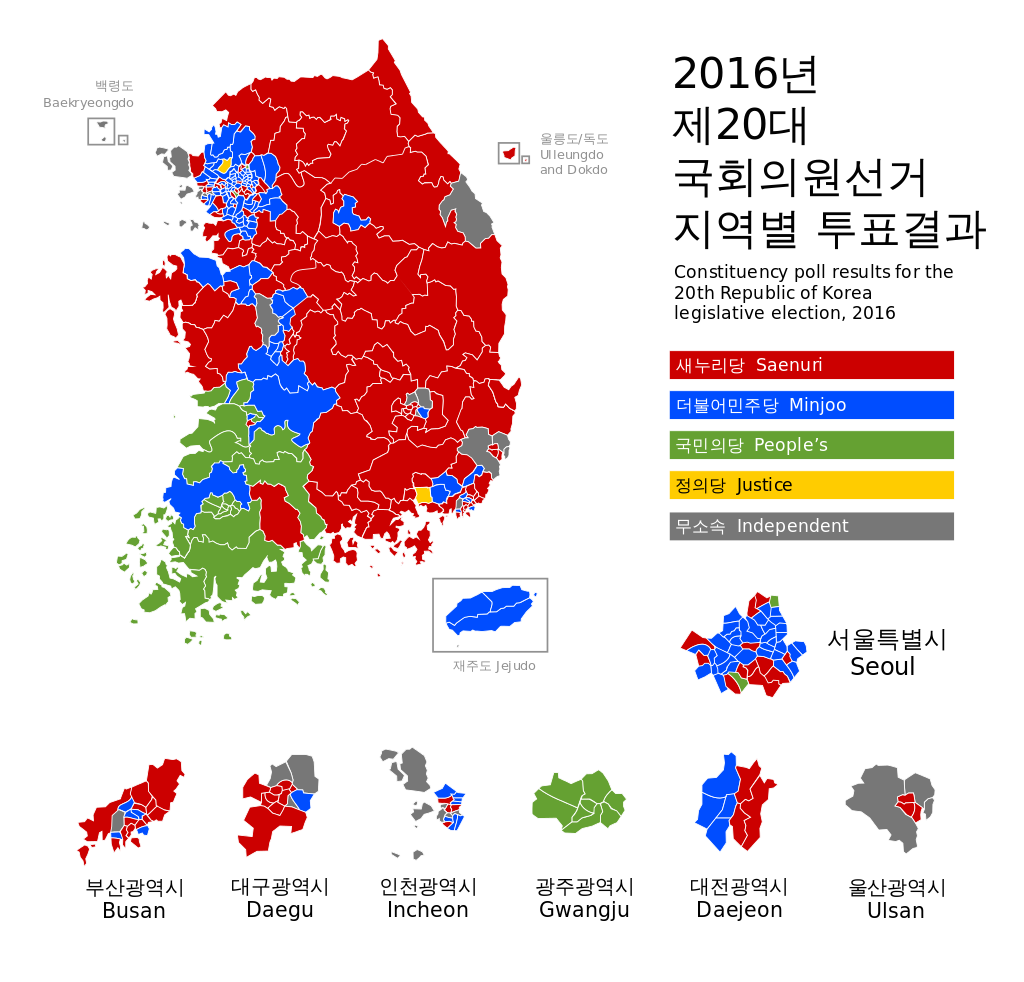Memo #376
By: Hyung Gu Lynn – hlynn [at] mail.ubc.ca

Perhaps the most unexpected result of the South Korean National Assembly Elections of April 13 was the emergence of Ahn Cheol-Soo’s People’s Party (PP) as not just a viable but significant third party (38 out of 300 seats; 26.7% of the popular vote). How did the PP become a veto player in the legislature, a party whose agreement is necessary for the passage of new bills and laws? The three main reasons are election strategies, legislative regulations, and Ahn’s increased experience as a politician.
First, mistakes by and in-fighting within the rival progressive Minjoo Party and the PP’s own strategy resulted in the PP winning 23 of 28 seats in the Honam region of southwestern Korea, a traditional stronghold for the Minjoo Party. The PP campaigned on the message that the Minjoo Party had neglected the Honam region over the years despite promises to the contrary, and fielded a roster of experienced Honam area candidates in contrast to Minjoo, which fielded new faces in the ridings.
Second, the National Assembly Law require that parties hold 20 seats to form a negotiating block, which allows them access to larger state subsidies and agenda-setting forums among the major parties. Also, the supermajority law, enacted in 2012, requires 3/5ths support (180 votes) for cloture or fast-tracked bill passage. The first and second parties do not have enough seats to reach majority (150 votes) even if some independents rejoin the respective parties: the Minjoo Party (123 seats; 25.5%) and the conservative Saenuri Party (122 seats; 33.5%) need the PP for leverage.
Third, Ahn himself has been steadily studying the practice of politics in the years he has spent as an Assemblyman since he burst onto the national scene as a presidential candidate in 2012. Several observers dismissed Ahn’s emergence in 2012 as a case of populism that failed to account for his neophyte status in politics. But by toiling within the National Assembly, the 2016 version Ahn was able to avoid accusations of dilettantism, and his experience allowed him to campaign in a notably more fiery fashion than during his brief, abortive 2012 presidential run.
Thus, despite the Korean media focus on voter rejection of the main two parties and President Park Geun-Hye as explanatory factors for the 2016 election results, the People’s Party’s own election strategy, existing legislative laws, and Ahn’s past three years spent in the political trenches, were as important in elevating it to a veto player status.
About the Author:
Hyung-Gu Lynn is the AECL/KEPCO Chair in Korean Research at the Institute of Asian Research and the Department of Asian Studies, University of British Columbia, where he also serves as Editor of the journal Pacific Affairs as well as the Asia Pacific Memo.

Ahn Cheol-Soo’s People’s Party claims 38 seats in last week’s South Korean National Assembly Elections (Credit: Boseong=News1).

20th General Election results by constituency in South Korea (Credit: Dmthoth, 2016).
If you enjoyed this memo, subscribe to our e-newsletter for free and receive new memos weekly via email.
Links
- Cho Kisuk, “What Caused Ahn Chul-soo Phenomenon: Political Distrust or Cynicism?” Korean Political Studies, 24, no. 3 (2015): 55-86. (Korean). 조기숙「안철수현상의 동인: 정당불신 혹은 정치냉소주의? 」『한국정치연구』24, no. 3 (2015): 55-86.
- Jeon Jin-Young, “Did the Revision of National Assembly Reform the 19th National Assembly?” Journal of Contemporary Politics, 8, no. 1 (2015): 99-125. (Korean). 전진영「국회선진화법은 국회를 선진화시켰는가? 」『현대정치연구』8, no. 1 (2015): 99-125.
- Lee Sang-Woo, “Analysis of the Causes of Legislative Gridlock in the Korean National Assembly: Focusing on the National Assembly Advancement Bill,” Korean Journal of Political Science, 23, no. 2 (2015): 47-75. (Korean). 이상우「국회 입법교착의 원인에 대한 탐구: 국회선진화법을 중심으로」『대한정치학회보』23, no. 2 (2015): 47-75.
- Suh Minji, “Green Tsunami: Why Did Honam Choose the People’s Party,” The Fact, 2016.04.14. (Korean). 서민지「‘녹색쓰나미’ 호남, 왜 국민의당을 선택했을까」『The Fact』2016.04.14.
- Emanuel Pastreich, “The Bernie Sanders of Korea? An Interview With Ahn Cheol-soo,” Huffington Post, 2016.02.11.
- George Tsebelis, Veto Players: How Political Institutions Work (Princeton: Princeton University Press, 2002).
- Erik Mobrand, “The Politics of Regulating Elections in South Korea: The Persistence of Restrictive Campaign Laws,” Pacific Affairs, 88, no. 4 (2015): 791-811.
Related Memos:
See our other memos on South Korea.